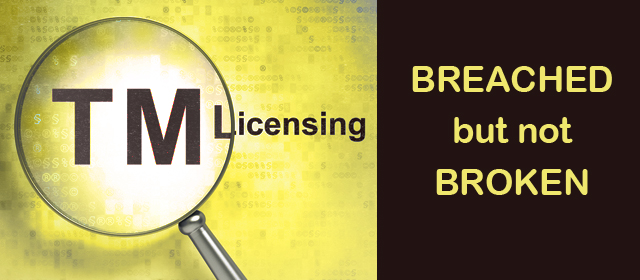Franchise 101: Franchisor Can Be “Employer” and Surviving Rejection
May 2019
Franchisor 101: Franchisor Can Be “Employer”

The Ninth Circuit sent shockwaves through the franchise industry in ruling that last year’s California Supreme Court decision broadening who may bring wage misclassification claims (Dynamex v. Superior Court) applied retroactively to a franchisor, and that a franchisor can be liable for misclassification committed by its franchisee.
Jan-Pro operated a three-tiered franchise structure that offered cleaning and janitorial services. The franchisor sold exclusive rights to “regional master franchisees” for a Jan-Pro business in specific geographic regions. The regional master franchisee then sold “unit franchises.”
Unit franchisees, including plaintiffs, had the exclusive right and obligation to service accounts provided by the regional master franchisee, and to bring in their own accounts. Plaintiffs claimed that, despite this franchise structure, they were employees of Jan-Pro, and were misclassified under a three-tiered franchise relationship.
The district court dismissed the lawsuit against Jan-Pro, finding that Jan-Pro did not have the necessary level of control over unit franchisees to make Jan-Pro an employer. The California Supreme Court (a state court) handed down its ruling in Dynamex while the unit franchisees appealed the dismissal to the Ninth Circuit (a federal court).
The Ninth Circuit reviewed the Dynamex decision, which adopted a test called “ABC” for analyzing if a worker has been misclassified. To prove a worker is not an employee, a business has the burden to show all of the following: (A) the worker is free from control over how to perform the services; (B) the services are outside the business’s usual course; and (C) the worker is in an independently established role. The Ninth Circuit held that the ABC test applied retroactively. Since the district court did not have the opportunity to apply the Dynamex ABC test to Jan-Pro, the Ninth Circuit reversed and remanded the case for that determination.
The Ninth Circuit also provided “guidance” about applying prong B of the ABC test. The court rejected Jan-Pro’s position that its business was franchising as opposed to cleaning services since “franchising is not in itself a business.” The court held that unit franchisees were likely “necessary and incidental” to Jan-Pro’s business of cleaning services because Jan-Pro benefitted by taking a percentage of profits, and Jan-Pro’s business model likely relies on unit franchisees performing cleaning services.
Retroactivity of Dynamex subjects employers to liability for misclassifying workers as independent contractors for as long as California’s statute of limitations allows. Even traditional franchise structures may fall under scrutiny of the retroactive ABC test. In March 2019, the Ninth Circuit reversed judgment in favor of 7-Eleven as to whether franchisees were misclassified as independent contractors and advised the district court to stay proceedings until resolution of Jan-Pro. Haitayan v. 7-Eleven, Inc. (9th Cir. 2019) 762 Fed.Appx. 393.
Now that the ABC test applies to franchisees and a parent franchisor when deciding if workers were misclassified as independent contractors, franchisors face increased exposure in employee misclassification and other wage and hour claims. Time will tell the ultimate reach of Jan-Pro’s application to franchisors. However, it behooves franchisors to encourage California franchisees to resolve such claims at the outset, at the risk of the franchisee having to indemnify and defend their franchisor in such claims.
Read: Vasquez, et al. v. Jan-Pro Franchising International, Inc. (9th Cir. May 2, 2019) (2019 WL 1945001)
Franchisee 101: Trademark Licensee’s Rights Survive Agreement “Rejection” in Bankruptcy

On May 20, 2019, the U.S. Supreme Court ruled that a bankrupt debtor’s “rejection” of a trademark licensing agreement does not terminate the licensee’s rights. This was under a part of the Bankruptcy Code that provides for reorganization, usually involving a corporation or partnership.
Tempnology, LLC, licensed Mission Product Holdings, Inc. to use Tempnology’s trademarks in the distribution of clothing and accessories. Prior to expiration of the license, Tempnology filed for Chapter 11 bankruptcy and, with court approval, rejected its license agreement with Mission. Tempnology then sought a ruling that its rejection of the license agreement also terminated Mission’s rights to use Tempnology’s trademarks. The bankruptcy court and First Circuit agreed.
The Supreme Court reversed, finding that the licensee could continue to act under the licensing agreement and use whatever trademark rights had been granted. The Court rejected Tempnology’s view that in bankruptcy, rights under a trademark licensing agreement must end upon rejection of the agreement. The Court also rejected Tempnology’s argument that absent termination of rights, “the debtor will have to choose between expending scarce resources on quality control and risking the loss of a valuable asset.”
Resolving a split among different courts, the Supreme Court ruled that “rejection breaches a contract but does not rescind it. And that means all the rights that would ordinarily survive a contract breach” remain in place. Thus, upon rejection the debtor “can stop performing its remaining obligations under the agreement. But the debtor cannot rescind the license already conveyed. So the licensee can continue to do whatever the license authorizes.”
The Supreme Court found that the rights granted in a license survive rejection or breach, provided special terms in the licensing contract or state law do not hold otherwise.
The Supreme Court’s ruling means that if a franchisor finds itself in bankruptcy, licensing rights granted to franchisees will survive the franchisor’s rejection of the franchise agreement in bankruptcy court. However, franchisees should understand the scope of their rights under their agreement with the franchisor and any relevant state law prior to signing the franchise agreement. As Justice Sotomayor noted, the Supreme Court did not decide “that every trademark licensee has the unfettered right to continue using licensed marks post rejection.” The “baseline inquiry” is “whether the licensee’s rights would survive a breach under applicable non-bankruptcy law.”
Read: Mission Product Holdings, Inc. v. Tempnology, LLC (May 20, 2019) — S.Ct. — (2019 WL 2166392)